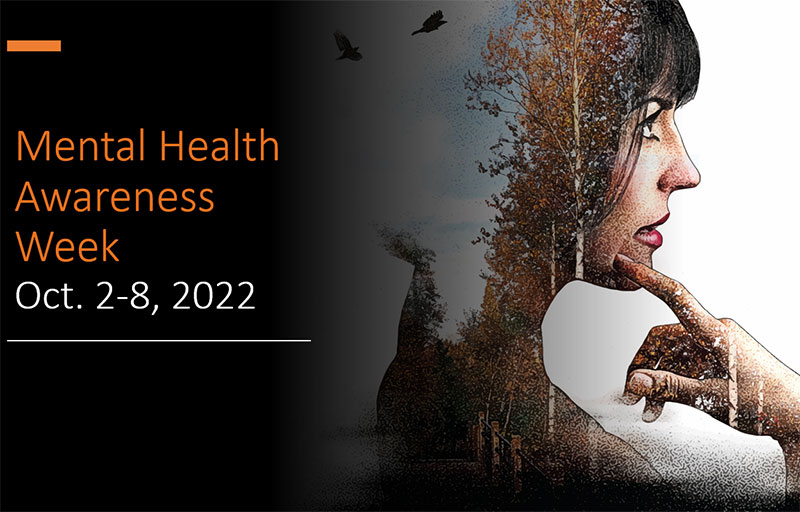Mental Health Awareness Week – “What I Wish I Had Known”

Condensed from the National Alliance of Mental Health
Did you know 1 in 5 adults experience mental illness each year? This means millions of Americans face the reality of living with a mental health condition. However, mental illness affects everyone directly or indirectly through family, friends or coworkers. That is why each year, during the first week of October, the National Alliance of Mental Health (NAMI) and participants across the country raise awareness of mental illness, fight discrimination and provide support through Mental Illness Awareness Week (Oct. 2-8, 2022).
NAMI believes that mental health conditions are important to discuss year-round, but highlighting them during this designated week provides a dedicated time for mental health advocates across the country to come together as one unified voice. Since 1990, when Congress officially established the first full week of October as Mental Illness Awareness Week, advocates have worked together to sponsor activities, large or small, to educate the public about mental illness.
Trying to tell the difference between what expected behaviors are and what might be the signs of a mental illness isn't always easy. There's no easy test that can let someone know if there is mental illness or if actions and thoughts might be typical behaviors of a person or the result of a physical illness.
Each illness has its own symptoms, but common signs of mental illness in adults and adolescents can include the following:
- Excessive worrying or fear
- Feeling excessively sad or low
- Confused thinking or problems concentrating and learning
- Extreme mood changes, including uncontrollable “highs” or feelings of euphoria
- Prolonged or strong feelings of irritability or anger
- Avoiding friends and social activities
- Difficulties understanding or relating to other people
- Changes in sleeping habits or feeling tired and low energy
- Changes in eating habits such as increased hunger or lack of appetite
- Changes in sex drive
- Difficulty perceiving reality (delusions or hallucinations, in which a person experiences and senses things that don't exist in objective reality)
- Inability to perceive changes in one’s own feelings, behavior or personality (”lack of insight” or anosognosia)
- Overuse of substances like alcohol or drugs
- Multiple physical ailments without obvious causes (such as headaches, stomach aches, vague and ongoing “aches and pains”)
- Thinking about suicide
- Inability to carry out daily activities or handle daily problems and stress
- An intense fear of weight gain or concern with appearance
Watch videos on specific topics:
Borderline Personality Disorder
Help is Available
Don’t be afraid to reach out if you or someone you know needs help. Learning all you can about mental health is an important first step.
Reach out to your health insurance, primary care doctor or state/county mental health authority for more resources. Or, contact the NAMI HelpLine (phone, text, email or chat) to find out what services and supports are available in your community.
If you or someone you know needs helps now, you should immediately call the National Suicide Prevention Lifeline at (800) 273-8255 or call 911.
Learn more about our behavioral health services or call (310) 836-7000.
